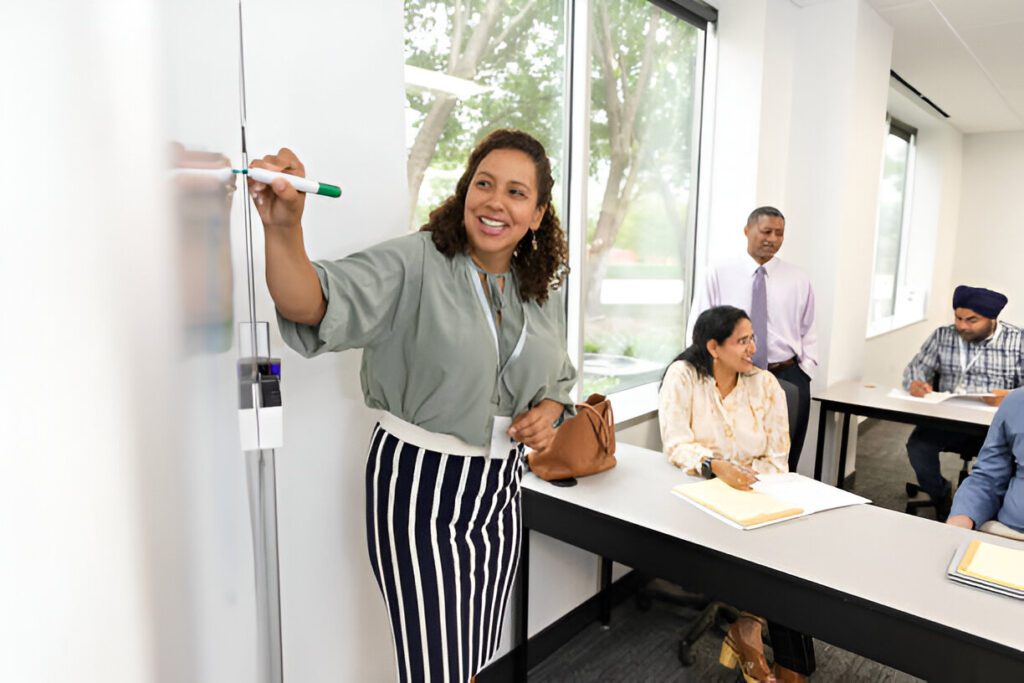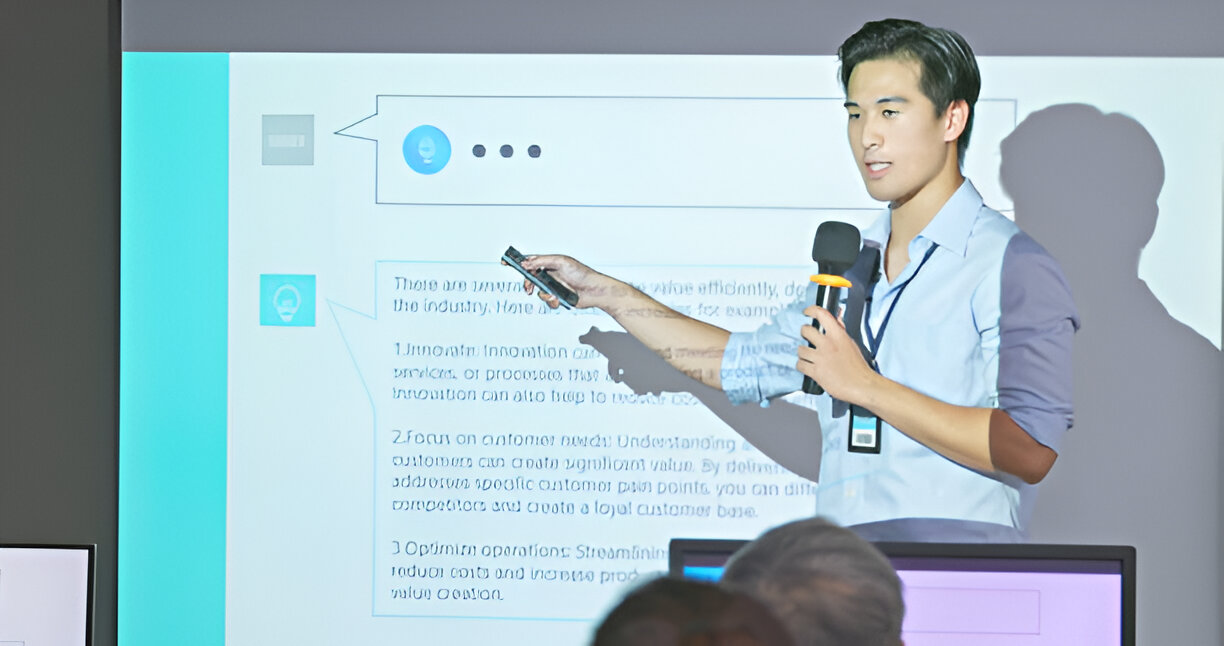Project defense is one thing that sends shivers down the spines of most students, this is normal for students because you have not done it before and so the live experience might not be there.
Even if you have seen people defend their projects you might not really understand how it feels until you have done it yourself.
The good news is having an A in your project defense and overall project work is very easy if you know what to do and how to do it. If you wish to have an A in your project defense then ensure to read this article to the end and implement it.
In this article, we will show you all you need to know to crack down your project defense, ranging from the pre-defense preparation to actual project defense. So, let’s dive into it.
Pre-Defense Preparation
- Read through the draft of your project and correct all spelling errors in the manuscripts
- Get conversant with seemingly difficult words or terms
- Print your project work on time and submit the department copy accordingly
- Make sure your work is well presented and spiral bind as the case may be. If you you are struggling with getting your project work approve by your supervisor check this post on How to get your final year project supervisor in school to approve your work fast without paying money

Best Project Defense Tips and Preparation to Have an A
Know Your Research Inside and Out and Have a Thorough Understanding of Your Project
Be well-versed in all aspects of your project especially the research questions, methodology, theoretical framework, findings, and conclusions since these are the focus of most Project Defense panel
Think and come up with possible questions the panel might ask and prepare responses. Consider potential weaknesses in your research and how to address them.
You can even ask your friends or colleagues to suggest possible questions or even ask you any questions concerning your work
Practice Your Presentation in Front of the Mirror and Among your friends
Rehearse and practice your presentation multiple times to ensure smooth delivery. Rehearse in front of friends, family, or peers to get feedback
Make out good time management, and ensure your presentation fits within the allocated time, typically between 10-20 minutes. This is because there are usually many other students who are on the queue to defend so you have to ensure that you make the maximum use of the limited time you are given.
If Applicable Create an Engaging Presentation
If your department demands that you use PowerPoint presentations, use them wisely; PowerPoint or other visual aids should complement your speech, not overwhelm it. Use graphs, charts, and images to make key points clearer.
Be Confident and Professional (Have High Self-esteem and Believe in Yourself)
Approach the project defense with confidence, but avoid being overconfident. Remember, you are the expert on your research. This is the truth most students do not know; nobody knows your work better than you. So be confident.
Express Good Body Language
Don’t be static on the stage, maintain good posture, make eye contact with the panel, and avoid fidgeting. Non-verbal communication can greatly influence how your message is received so you have to combine good body language.
Some examples include illustrating with your hands, pointing to images, and moving a little to the left and right. This shows you are confident and know what you are saying.
Be Ready to Justify Your Methodology
Many students are usually asked why they carried out the study they did, unfortunately, some can say anything, with the excuse that the project topic was given by their supervisor which does not speak well of them. Be prepared to explain why you chose specific research methods and how they were appropriate for answering your research question.
Explain Findings Briefly
The major goal of every study is to obtain a finding or results. This is the more reason you should be able to spell your findings clearly. Ensure you can clearly explain your results and how they contribute to the existing body of knowledge. Be ready to discuss implications, limitations, and future research directions.
Stay Calm and Collected During Questions Section
After your presentation, you will be asked questions to determine how well you understand your work. So, Stay Calm During Questions. If a panel member challenges your work or asks a difficult question, stay composed. Take a moment to think before answering and avoid becoming defensive.
If you are unsure about something, it’s okay to admit it rather than guessing. Never argue with the panelist. If they insist, agree with them for peace to reign and politely thank them for their contribution.
Prepare Handouts and Materials in Need Be
Provide copies of your research summary or key findings for the panel if allowed. Ensure all technical equipment, such as projectors, laptops, or audio systems, are working correctly before your project defense.
Stay Relaxed and Positive
Before the project defense, engage in deep breathing or visualization techniques to calm nerves. If you realize you are getting nervous at the beginning of the project defense, all you have to do is take it slowly. Pronounce the word slowly and gain your control before you flow again.
Maintain a positive attitude and Consider the project defense an opportunity to share your hard work rather than a test to be feared, don’t be frightened or timid.

Frequently Asked Questions During Project Defense (Watch-Out Questions) and How to Answer them
1. Why did you choose to carry out this project work?
I chose this project because of my interest in (insert the specific subject/topic). This area has significant practical and theoretical implications, and I saw a gap in the literature that my research could address. Additionally, I was drawn to the potential real-world applications of my findings, particularly in (insert relevant area or field).
2. What was your motivation for this research?
My motivation stemmed from a combination of personal interest and the current trends/issues within the field. I observed (specific challenge or trend) and felt that conducting this research could provide valuable insights or solutions. Moreover, I wanted to contribute to the ongoing discourse and explore (specific element) in greater depth.
3. Why were the limitations and challenges you faced during the work valuable?
The limitations and challenges helped me refine my approach and enhanced my critical thinking. They forced me to adapt my methodology and provided learning opportunities that enriched my study. Recognizing and addressing these challenges also strengthened the rigor and reliability of the research.
4. Tell me what your Analysis is about?
My analysis focuses on (explain the main subject of your analysis). I employed (name of the analytical method or tools used) to examine (data, variables, or phenomena). This allowed me to draw conclusions about (specific findings or trends), which were crucial in addressing my research questions.
5. What are the aims, objectives, and hypotheses of your work?
The primary aim of my research was to (state the main aim). My objectives included (list specific objectives), which guided the investigation. My hypothesis was (state the hypothesis), which I tested through (mention the methodology or experiment).
6. Does your study contribute to the body of knowledge?
Yes, my study contributes to the body of knowledge by (explain how). It offers new insights into (specific aspect), provides a different perspective on (related topic), and may serve as a foundation for further research in this area.
7. What is the importance of your project work?
The importance of this project lies in its potential impact on (specific field or application). It provides (mention findings or new insights) that can be used by (target audience, practitioners, or policymakers). Additionally, it opens up new avenues for research in (related areas).
8. What were your limitations during the course of your study?
Some of the limitations I faced included (mention specific limitations such as sample size, data availability, time constraints, etc.). Despite these challenges, I mitigated their impact by (explain how you addressed the limitations).
9. What method did you use in your study?
I used (specific research methods, e.g., qualitative, quantitative, mixed methods) to conduct the study. Specifically, I employed (name of method, such as surveys, interviews, experiments, etc.) to collect data and applied (mention analysis techniques) to interpret the results.
10. What were your findings?
My findings revealed (summarize the key findings). These results demonstrated that (mention any trends, relationships, or significant outcomes discovered), which directly contribute to addressing the research questions posed at the beginning of the study.
11. What will you recommend based on your findings?
Based on my findings, I recommend (specific actions or policy changes, further research, and practical applications). These recommendations aim to (improve a situation, solve a problem, and contribute to further knowledge), and I believe they could lead to (mention expected outcomes).
12. Does your work contribute to existing knowledge in this field?
Yes, my work builds on existing knowledge by (explaining how it relates to previous studies, theories, or concepts). It extends current understanding by (mention any new findings or interpretations that add to the field).
13. Does your findings support previous studies in this field?
In some aspects, my findings support previous studies, particularly (mention specific studies or findings). However, I also found some deviations from established research, particularly in (mention differences), which suggest that there may be new dynamics or factors to consider.
To get Free Final Year Research Project topics and materials for Polytechnic and University Students click here
If you are having issues choosing a project topics check this post on How to Choose the Perfect Final Year Research Project Topic
Feel free to share this article using the social media handles below



